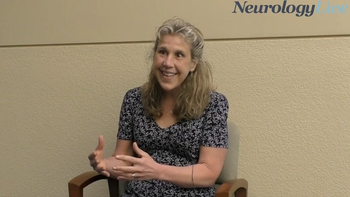
The professor of neurology at the NYU Grossman School of Medicine discussed her presentation at ACTRIMS Forum 2022, which showed better cognitive outcomes in MS following treatment with tDCS. [WATCH TIME: 3 minutes]

The professor of neurology at the NYU Grossman School of Medicine discussed her presentation at ACTRIMS Forum 2022, which showed better cognitive outcomes in MS following treatment with tDCS. [WATCH TIME: 3 minutes]
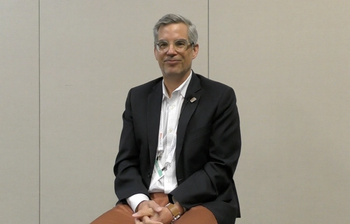
The executive vice president of the National MS Society spoke on recently published data suggesting the relationship between EBV and MS, also sharing his opinion on the potential of vaccines. [WATCH TIME: 2 minutes]
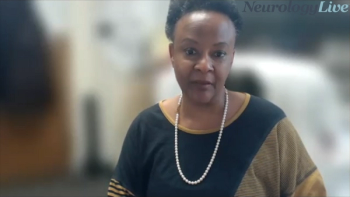
The pediatric epileptologist at Cleveland Clinic provided insight on her presentation at the 2022 AAN Annual Meeting that evaluated ganaxolone in phase 3 study of patients with CDKL5 deficiency disorder. [WATCH TIME: 4 minutes]
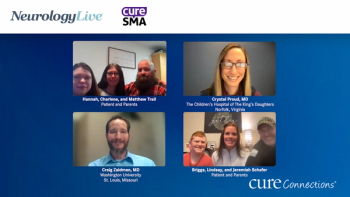
Dr Craig Zaidman details the symptoms a physician looks for in a pediatric patient when making an SMA diagnosis.

Families with patients with SMA explain the signs and symptoms shown by their children that prompted a doctor’s visit.
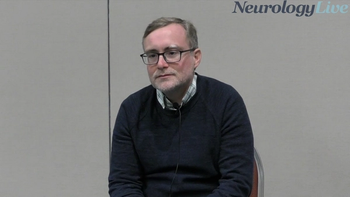
The assistant professor of neurology at the University of Pennsylvania discussed his abstract at ACTRIMS Forum using 7T MRI features of newly developed MS lesions to predict chronic active lesions. [WATCH TIME: 4 minutes]
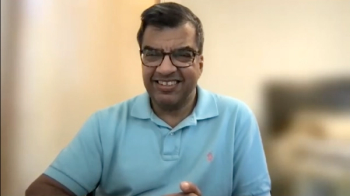
On Rare Disease Day, the director of the Division of Neuromuscular Diseases at UC Irvine commented on the potential of AT845 for this patient population. [WATCH TIME: 3 minutes]
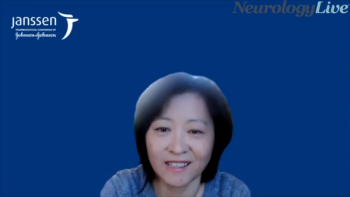
The global compound development team leader at Janssen discussed the importance of Rare Disease Day and one in particular, myasthenia gravis, which affects approximately 36,000 to 60,000 people in the US. [WATCH TIME: 3 minutes]

The executive vice president of the National MS Society spoke on the primary theme of ‘biomarkers’ at this year’s meeting, as well as the areas he believes require the most attention for patients with MS. [WATCH TIME: 3 minutes]
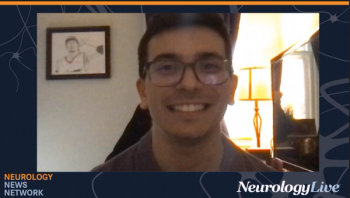
Neurology News Network for the week ending February 26, 2022. [WATCH TIME: 3 minutes]

At the ACTRIMS Forum 2022, the executive vice president of the National MS Society commented on the need to diagnose and initiate treatment for MS early, as well as employing wellness strategies to reduce risk of comorbidities. [WATCH TIME: 4 minutes]

The executive vice president of the National MS Society spoke on the updated data from an analysis on economic burden, which illustrated the ‘staggering’ impact of the disease. [WATCH TIME: 4 minutes]

The professor of neurology at Cleveland Clinic and president of ACTRIMS noted his excitement for this year’s Forum, which will feature presentations on a variety of topics in the field of multiple sclerosis. [WATCH TIME: 2 minutes]
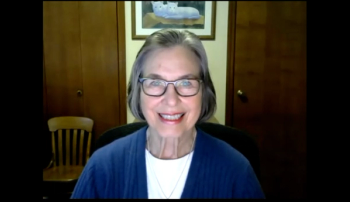
The Distinguished Professor Emerita at Indiana University School of Nursing spoke on what the task force discovered in a review of literature on stigma from 1985 through 2019. [WATCH TIME: 7 minutes]
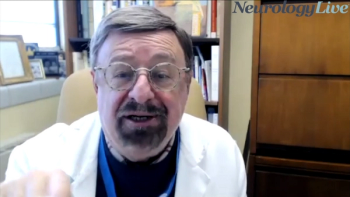
The director of Geriatric Psychiatry at the St Louis University School of Medicine discussed the need to improve awareness of the signs of psychiatric-related symptoms and to eliminate the stigmas associated with them. [WATCH TIME: 3 minutes]

The Distinguished Professor Emerita at Indiana University School of Nursing spoke on the prevalence of stigma in the field of epilepsy and how it can affect the daily life of patients. [WATCH TIME: 4 minutes]
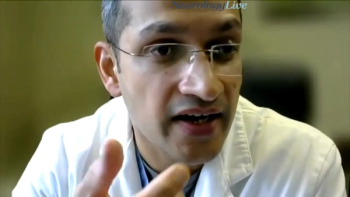
The vascular neurologist at Allegheny Health Network provided an overview of the RapidAI and how it is evolving the way clinicians manage and treat patients who present with stroke. [WATCH TIME: 4 minutes]
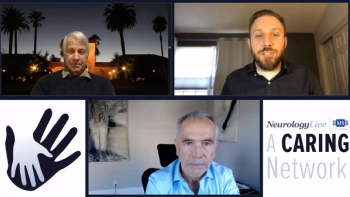
Alberto Ascherio, MD, DrPH, and Lawrence Steinman, MD, join NeurologyLive in a conversation about the clinical and research implications of a causative relationship between Epstein-Barr virus and multiple sclerosis.
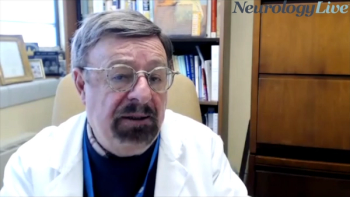
The Samuel W. Fordyce professor and director of Geriatric Psychiatry at the St Louis University School of Medicine discussed the critical roles specialists and caregivers during telehealth visits in long-term care settings. [WATCH TIME: 4 minutes]
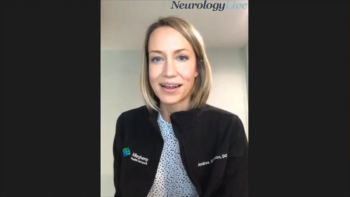
The assistant director of the Allegheny Headache Center provided insight on how the center utilizes its headache registry to construct treatment plans, along with identifying questions that still need answers. [WATCH TIME: 3 minutes]
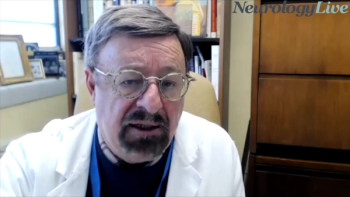
The director of Geriatric Psychiatry at the St Louis University School of Medicine discussed what clinicians should pay attention to when conducting telehealth visits for psychosis-related symptoms in patients with neurodegenerative diseases. [WATCH TIME: 3 minutes]
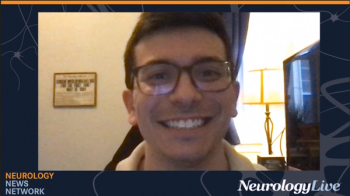
Neurology News Network for the week ending February 19, 2022. [WATCH TIME: 3 minutes]
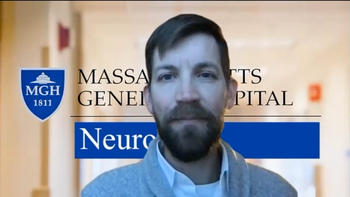
The director of the Multiple Sclerosis and Neuromyelitis Optica Unit at Massachusetts General Hospital commented on presentations given at the recent event, as well as key takeaways from his own discussion on novel imaging approaches in multiple sclerosis. [WATCH TIME: 2 minutes]
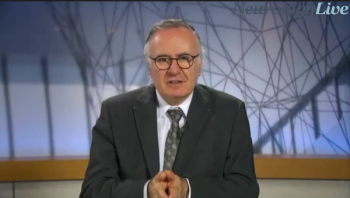
The director of Cleveland Clinic’s Epilepsy Center discussed the currently known overlap between neurological diseases and the need to identify causative biomarkers. [WATCH TIME: 4 minutes]

The director of the Multiple Sclerosis and Neuromyelitis Optica Unit at Massachusetts General Hospital outlined a presentation he gave at a recent Institutional Perspectives in Neurology: MS event. [WATCH TIME: 3 minutes]
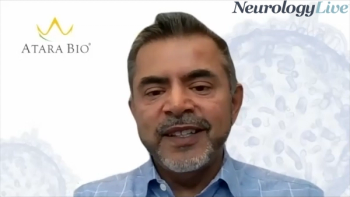
The chief medical officer at Atara Biotherapeutics provided insight on the future direction of its investigational agent ATA188 following new data that suggested a link between Epstein-Barr virus and multiple sclerosis. [WATCH TIME: 4 minutes]

The director of the Division of Neuromuscular Diseases at UC Irvine discussed the positive data, noting that the treatment was “incredibly safe.” [WATCH TIME: 4 minutes]
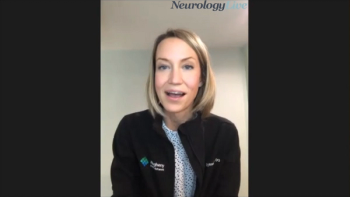
The assistant director of the Allegheny Headache Center explained the origins of the recently launched headache registry, which keeps data about patients’ responses to medications. [WATCH TIME: 6 minutes]
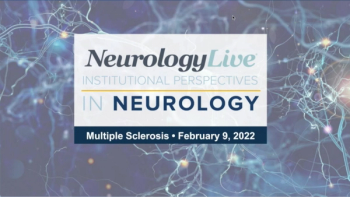
Chaired by Eric Klawiter, MD, MSc, the presentations also feature Mass General and Brigham and Women's experts Tanuja Chitnis, MD; Kristin Galetta, MD; and Michael Levy, MD, PhD. [WATCH TIME: 1 hour, 26 minutes]
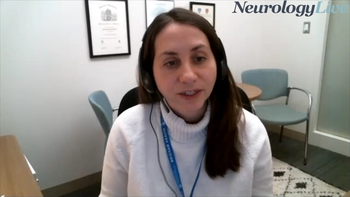
The professor of neurology at Brigham and Women’s Hospital discussed her presentation on B-cell depleting therapies such as ocrelizumab and ofatumumab for the treatment of multiple sclerosis. [WATCH TIME: 2 minutes]